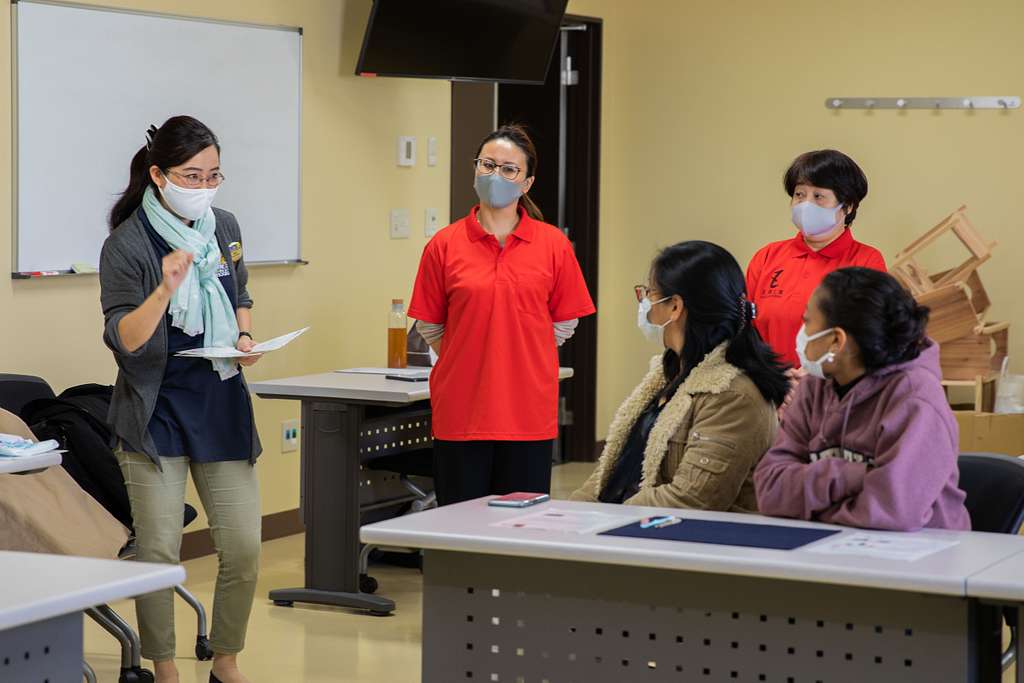Relocating to a new country can be an exhilarating but also complex endeavor, especially when faced with the intricacies of moving to the United Kingdom. Whether you are considering the bustling streets of London, the cozy towns of Scotland, or the picturesque landscapes of Wales, navigating the ins and outs of a relocation can be a daunting task. In this comprehensive guide, we aim to provide you with essential information, valuable tips, and practical advice to make your journey to the UK as smooth and seamless as possible. From understanding visa requirements and finding suitable accommodation to immersing yourself in the local culture and embracing the British way of life, we have got you covered. So, sit back, relax, and allow us to be your trusted companion on this exciting relocation journey to the United Kingdom.
Requirements for Relocating to the UK
Before embarking on your exciting new adventure to the United Kingdom, it’s important to be aware of the requirements and necessary documents you’ll need in order to relocate smoothly. Here’s a comprehensive guide on what you need to consider:
Visa: The first and most important step is to obtain a valid visa. Depending on your purpose of relocation, you may need to apply for different types of visas such as work visa, study visa, or family visa. It’s essential to visit the official UK government website for accurate information and to apply for the appropriate visa that suits your circumstances.
Healthcare: The UK boasts a high-quality healthcare system, but it’s crucial to ensure you have adequate coverage. If you are a citizen of the European Union, you can benefit from the European Health Insurance Card (EHIC) or the newly issued Global Health Insurance Card (GHIC). Non-EU citizens should arrange comprehensive health insurance before their relocation to cover any medical expenses.
Housing: One of the essential aspects of relocating to the UK is finding suitable accommodation. Whether you choose to rent or buy a property, it’s advisable to engage with the services of a reputable estate agent or online property platforms to assist in your search. You will need to provide proof of identity, employment or financial stability, as well as references from previous landlords or employers to secure a rental contract.
Bank Account: Opening a UK bank account is necessary to manage your finances efficiently. It’s recommended to research and compare different banks to find one that suits your needs. To open an account, you typically need to provide proof of identity, proof of address, and proof of income or employment status. This will enable you to access essential services like direct debits, online banking, and transferring money more conveniently.

Finding Suitable Accommodation in the UK
When it comes to , there are a range of options to explore. Whether you are planning a short stay or a long-term living arrangement, the UK offers a diverse range of housing choices. Here are some key points to consider:
1. Budgeting Considerations:
Before beginning your search, it’s essential to establish a realistic budget. The cost of accommodations can vary greatly depending on the location, type of property, and facilities provided. Consider your financial capacity and be sure to include other expenses such as utility bills, council tax, and insurance.
Researching the average rental prices and property purchase costs in the area can give you a better idea of what to expect. Remember, it’s always wise to allocate a portion of your budget for unexpected costs or emergencies.
2. Types of Accommodation:
The UK offers a wide range of accommodation options to suit different needs and preferences. Some popular choices include:
- Flats or Apartments: Ideal for those seeking a convenient city living experience.
- Houses: Great for families or individuals who prefer more space and privacy.
- Shared Accommodation: A cost-effective choice that allows you to share rent and living expenses with others.
- Student Halls: Designed specifically for students, these offer a supportive community and are often located close to educational institutions.
- Short-term Rentals: Perfect for travelers or those seeking temporary accommodation options.
3. Researching and Viewing Properties:
Once you have identified your budget and preferred type of accommodation, it’s time to begin your search. Online property portals and real estate websites are excellent resources to explore available options. Make use of search filters to narrow down your choices based on location, budget, and property specifications.
When viewing properties, ensure you inspect key aspects such as the condition of the property, amenities, security measures, proximity to transportation and essential services, and the neighborhood’s overall feel. Do not hesitate to ask questions or request additional information from landlords or letting agents.
Remember, finding suitable accommodation is a crucial step in your UK journey. With careful planning, clear budgeting, and thorough research, you can find the perfect place to call home in the vibrant and diverse landscape of the United Kingdom.

Understanding the UK Education System: Schools and Universities
When it comes to education, the United Kingdom offers a diverse and renowned system of schools and universities that cater to students of all ages and backgrounds. From primary education to tertiary level, here’s an overview of the different types of institutions that form the foundation of the UK education system:
Schools in the UK:
The UK education system begins with primary schools, also known as infant or primary schools, which educate children aged 5 to 11. Here, pupils receive a broad education that covers subjects such as English, mathematics, science, history, geography, and more. Following primary school, students move on to secondary schools, which cater to ages 11 to 16.
Secondary education in the UK often involves a mix of compulsory subjects, such as mathematics, English, and science, alongside a range of optional subjects. In Year 9, students take standardized tests known as GCSEs (General Certificate of Secondary Education), which serve as qualifications for further study.
Once students complete their GCSEs, they have the option to continue their education in a sixth form college or further education college, which provide two-year courses leading to A-level qualifications. These qualifications are crucial for university admission and are obtained by studying a specific range of subjects in depth.
Universities in the UK:
The UK is home to some of the world’s most prestigious universities, renowned for their academic excellence and research output. Universities in the UK offer a vast array of courses, covering various disciplines, from arts and humanities to sciences and engineering.
Undergraduate degrees in the UK typically span three years, while specialized courses such as medicine or dentistry may take longer to complete. Upon graduation, students are awarded a Bachelor’s degree. Those who wish to delve deeper into their field of study can pursue postgraduate degrees, including Master’s and Doctorate degrees.
One of the distinguishing factors of UK universities is the tutorial system, where students receive personalized attention from tutors and engage in small group discussions, fostering critical thinking and independence. Additionally, UK universities often have a strong emphasis on research and provide ample opportunities for students to participate in groundbreaking projects.

Healthcare in the UK: National Health Service (NHS) and Private Options
When it comes to healthcare in the UK, two primary options are available: the National Health Service (NHS) and private healthcare. Both options offer access to a range of medical services, but they differ significantly in terms of funding, access, and cost.
National Health Service (NHS)
The NHS is the publicly funded healthcare system in the UK, providing free medical treatment and services to all residents. It is primarily funded through general taxation, ensuring that essential healthcare is accessible to everyone, regardless of their income. The NHS covers a wide range of services, including general practitioners (GPs), hospitals, emergency care, mental health support, and specialist treatments. Waiting times for non-urgent services may vary, but the NHS strives to prioritize patients based on medical need.
The key advantages of the NHS include:
- Free healthcare services for UK residents
- Comprehensive coverage for a wide range of medical needs
- Emergency care available around the clock
- Care provided by qualified and regulated healthcare professionals
Private Healthcare
Private healthcare offers an alternative option for individuals who prefer faster access to medical services or desire more personalized care. It is funded through private health insurance or out-of-pocket payments. Private healthcare facilities often provide a broader range of treatment options, shorter waiting times, and more luxurious accommodations. Patients have the freedom to choose their healthcare provider and specialist.
Key features of private healthcare include:
- Priority access to specialist consultations and treatments
- Greater flexibility in appointment scheduling
- Access to private hospitals and medical facilities
- Personalized care and attention
While private healthcare offers several advantages, it is important to note that these services come at a cost, and the coverage can vary based on the individual’s insurance policy. Moreover, private options do not replace the vital role played by the NHS in providing healthcare services to the entire UK population.

Navigating the UK Job Market: Employment Opportunities and Work Permits
When it comes to navigating the job market in the United Kingdom, it is important to understand the various employment opportunities available and the requirements for obtaining a work permit.
One of the main employment opportunities in the UK is the vast range of industries that exist. From finance and technology to healthcare and creative arts, there are numerous sectors that offer a diverse range of job roles. It’s crucial for job seekers to research and identify the industries that align with their skills and interests.
To successfully work in the UK, most individuals will need a work permit. The type of work permit required depends on various factors, including the individual’s citizenship and the duration of their employment. It is important to carefully review the UK government’s regulations and guidelines to determine the appropriate work permit needed.
Some common types of work permits include the Tier 2 (General) visa for skilled workers with a job offer, the Tier 5 (Youth Mobility Scheme) visa for young adults aged 18-30, and the Tier 1 (Investor) visa for individuals looking to invest a significant sum of money in the UK. Each visa has its own specific requirements and application process, so it’s essential to gather all the necessary documents and submit a well-prepared application.
In conclusion, Navigating the UK job market can be an exciting and rewarding experience for those looking for employment opportunities in a variety of industries. However, it’s vital to understand the requirements for obtaining a work permit and to research the various visa options available. By being proactive and well-informed, individuals can increase their chances of success in securing employment and fulfilling their career aspirations in the UK.

Cultural Adaptation and Integration: Tips for Settling in the UK
When moving to a new country, such as the United Kingdom, cultural adaptation and integration can be both exciting and challenging. Embracing the local customs and traditions will not only help you feel more at home, but it will also foster better connections with the local community. Here are some valuable tips to ease your transition and help you settle in smoothly:
- Learn the Language: While English is widely spoken in the UK, familiarizing yourself with the nuances of British English is essential. Practice your conversational skills, expand your vocabulary, and understand local expressions to facilitate effective communication.
- Explore British Culture: Immerse yourself in the rich culture of the UK. Visit museums, attend local festivals, and explore historical landmarks. Engage with the people, their traditions, and their way of life. Understanding British customs and society will enable you to connect with the locals on a deeper level and appreciate the country’s heritage.
- Connect with the Community: Make an effort to join community groups, clubs, or initiatives in your new neighborhood. This will provide opportunities to meet people, make friends, and develop a support network. Take part in social activities, volunteer for local causes, and attend community events to broaden your social circle and establish lasting relationships.
- Adapt to British Etiquette: Acquaint yourself with British etiquette and social norms. The UK places importance on punctuality, politeness, and queuing. Respect personal space, maintain decorum, and uphold good manners while interacting with others. Being aware of these cultural nuances will help you integrate seamlessly into British society.
Remember, cultural adaptation takes time, so be patient with yourself. The UK is a diverse and inclusive country that celebrates its multicultural heritage. By embracing these tips, you’ll find it easier to settle into your new life in the UK while forging meaningful connections and creating lasting memories.
The Way Forward
In conclusion, relocating to the UK can be an exciting and rewarding experience for individuals and families alike. This comprehensive guide has provided a wealth of information, covering key aspects such as visas and immigration, housing and accommodation, healthcare, education, and more.
By understanding the necessary steps and considerations involved in relocating to the UK, individuals can feel more confident and prepared for the process. From researching the right visa and understanding the various types available, to navigating the housing market and finding the perfect place to call home, this guide aims to alleviate potential challenges and provide helpful insights.
Moreover, familiarizing oneself with the UK’s healthcare system, enrolling children in suitable schools, and embracing the rich cultural diversity of the country can greatly enhance the relocation experience. While the move may present its fair share of adjustments and cultural differences, being informed and open-minded will go a long way in ensuring a smooth transition.
Remember, the UK is known for its vibrant cities, picturesque landscapes, renowned universities, and thriving job market. With a little preparation and a positive mindset, relocating to the UK can be an incredible opportunity for personal and professional growth.
As always, it is recommended to consult with relevant authorities and seek professional advice when necessary. The information provided in this comprehensive guide is accurate at the time of writing, but regulations and procedures may change. Therefore, it is imperative to stay updated with the latest guidelines and requirements.
We hope that this guide has served as a valuable resource, equipping you with essential insights and knowledge to make your relocation journey smoother and more successful. Whether you are moving for work, education, or simply seeking a new adventure, we wish you the best of luck in your transition to the UK and hope you find your new home truly welcoming.





